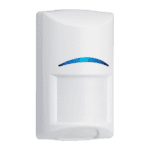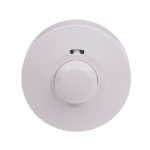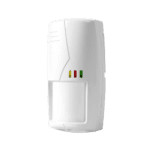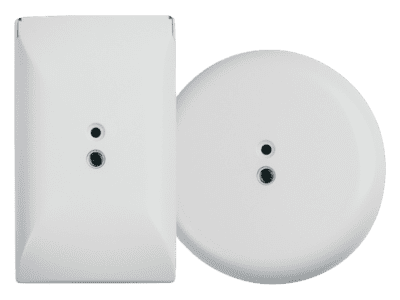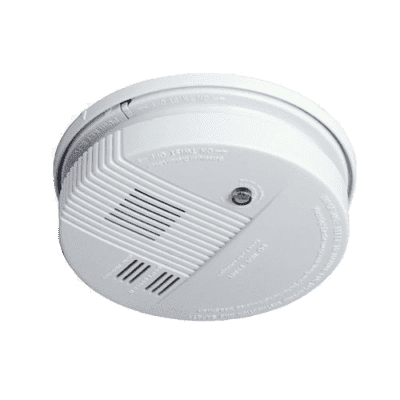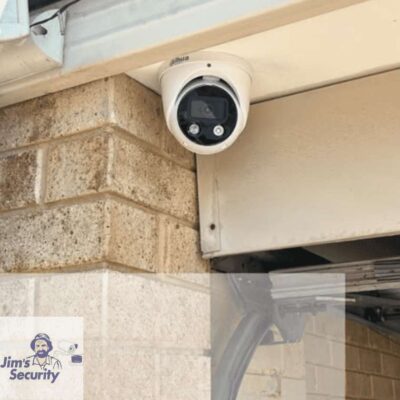Alarm Sensor Options
Standard PIRs $
Passive Infrared Sensors (PIRs) are the most widely used motion detection device in home security systems. They work by tracking body heat, i.e. infrared energy, and movement. If a moving object blocks too many of a sensor’s grid squares and IR levels change rapidly, an alarm will be triggered.
Microwave Sensors $$
Microwave Sensors send out high frequency radio waves that measure the reflections off a moving object. These sensors have a greater range than PIRs and are therefore slightly more expensive. However, they are prone to electrical interference.
Dual Technology Motion Sensors $$$
Some motion sensors combine PIR with Microwave (MW) technology to attempt to reduce false alarms. In this case, the alarm has two sensors, both need to be tripped off for the alarm to sound.
Pet Immune PIRs $$$
Alarms with pet friendly sensors are more expensive than those with standard PIRs. The cost of a pet immune PIR will depend on the size of your pet.
Perimeter Protection
At Jim’s Security we strongly recommend including Perimeter protection in your alarm system. The most common forms of perimeter protection include:
Reed Switches $
While an alarm system monitors movement within a space using sensors, reed switches provide an added layer of security by closely monitoring entry and exit points.
The system will send alerts and trigger an alarm if it detects that a door or window has been opened.
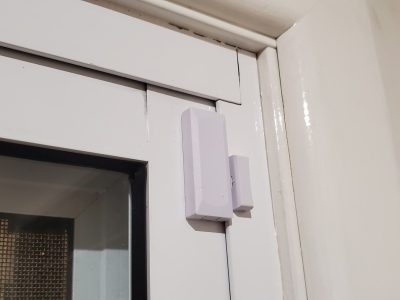
Glass Break Detectors /Shock Sensors $$
Glass break detectors are a secondary form of perimeter protection which complement door and window sensors by monitoring vibration. Frequency or shock waves associated with glass shattering will set off an alarm.
Glass break detectors are more expensive than reed switches, however you will likely need a greater number of reeds.
Integrated Smoke Detectors $$
While standard smoke alarms will only trigger an audible siren if smoke is detected, an integrated smoke detector will alert you of a fire whether you are in or away from your property.
If you do not reply to a danger alert within a set period of time, a pre-set contact and the emergency services will be contacted.
Although integrated smoke detectors are a bit more pricey than a standard smoke detector, the additional cost is well justified.
For more information visit our Alarm Systems Page or Security Alarm Buyers’ Guide.
For assistance finding a security alarm tailored to the unique requirements of your home or business, don’t hesitate to give us a call on 131 546 or book a free onsite quote.
